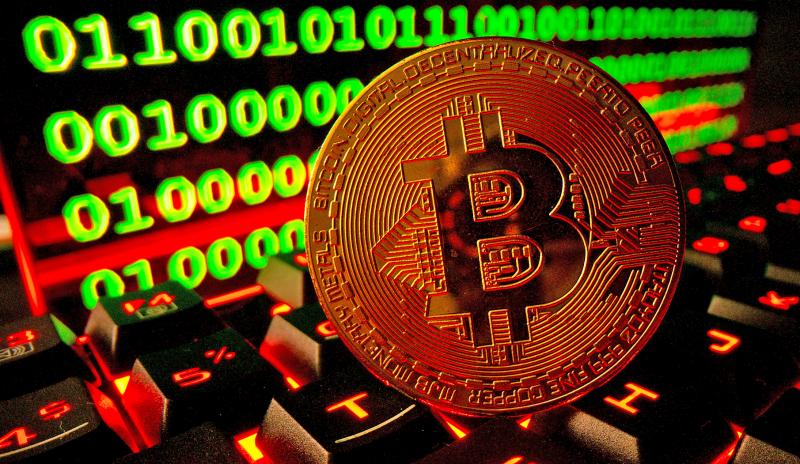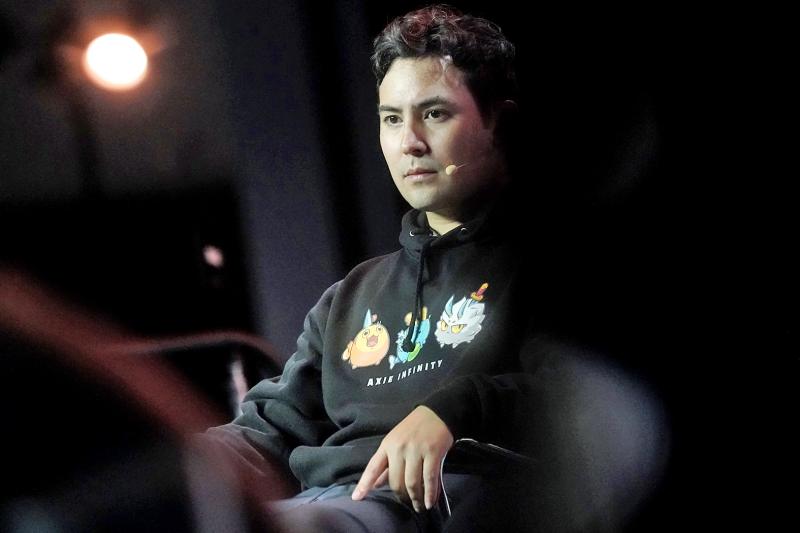Investigators are on the trail of hackers who spirited away more than US$600 million in cryptocurrency last week, watching the money as it moves around a system that critics call the Wild West of finance.
But they are playing catch-up: the gaming company that got scammed apparently did not even notice for six days.
The hack is one of the biggest to hit the crypto world, raising huge questions about security in an industry that only recently burst into the mainstream thanks to celebrity promotions and promises of untold wealth.

Photo: REUTERS
The sector has been beset by scams and hacks.
This week’s theft from the makers of Axie Infinity, a game where players can earn crypto through game play or trading their avatars, came just weeks after thieves made off with around US$320 million in a similar attack.
“We are seeing more hacks because there is more money in blockchain,” said Roman Bieda of Coinfirm, a crypto security company, referring to the technology that underpins cryptocurrencies.

Photo: Bloomberg
The industry should have learned the lessons from previous attacks but security was still being sacrificed for profit, he added, labelling Axie’s failure to notice the hack a “huge deficiency.”
REFUNDS PROMISED
The Axie Infinity attackers exploited weaknesses in the set-up put in place by the Vietnam-based firm behind the game, Sky Mavis.
The company had to solve a problem: the ethereum blockchain, where transactions in the ether cryptocurrency are logged, is relatively slow and expensive to use.
To allow Axie Infinity players to buy and sell at speed, the firm created an in-game currency and a sidechain with a bridge to the main ethereum blockchain.
The result was faster and cheaper — but ultimately less secure.
Hackers were able to take over the sidechain and empty its coffers apparently without anyone realizing, something experts say would be all but impossible on the ethereum blockchain.
The firm said it would recover or reimburse the funds, easing the anxiety of gamers — particularly in the Philippines where hundreds of thousands play Axie Infinity.
“Some of the Philippine community right now are going crazy because of what happened,” said Dominic Lumabi, a gamer from Manila.
Some feared the game would close and money would be lost, he said, adding that he was relieved Sky Mavis was being transparent.
But the firm faces a tough challenge to get the money back.
‘CONSTANT BATTLE’
Security firms are monitoring the stolen money as it moves through various wallets, as accounts are called in the crypto-world.
Blockchain data platform Chainalysis is helping Sky Mavis track the money, and Elliptic said it was investigating and alerting its clients.
Bieda from Coinfirm said that sooner or later the perpetrators would be traced.
“The bigger the amount, the harder it is to hide,” he said.
But even though investigators can see where the money is, there are tricks the thieves can use.
They can employ software that mixes the stolen money with legitimate streams, use exchanges with lax rules, or move their funds to a jurisdiction with no rules at all such as North Korea or Russia.
Any of those moves makes it much easier to transfer the cryptocurrency into everyday, spendable cash.
It is a “constant battle” between the thieves and those trying to stop them, said Bieda.
“Adoption (of cryptocurrency) is growing, more protocols and more solutions are created, but the pursuit of cheap transactions and profit means the industry sometimes... forgets about security.”

Many people noticed the flood of pro-China propaganda across a number of venues in recent weeks that looks like a coordinated assault on US Taiwan policy. It does look like an effort intended to influence the US before the meeting between US President Donald Trump and Chinese dictator Xi Jinping (習近平) over the weekend. Jennifer Kavanagh’s piece in the New York Times in September appears to be the opening strike of the current campaign. She followed up last week in the Lowy Interpreter, blaming the US for causing the PRC to escalate in the Philippines and Taiwan, saying that as

Taiwan can often feel woefully behind on global trends, from fashion to food, and influences can sometimes feel like the last on the metaphorical bandwagon. In the West, suddenly every burger is being smashed and honey has become “hot” and we’re all drinking orange wine. But it took a good while for a smash burger in Taipei to come across my radar. For the uninitiated, a smash burger is, well, a normal burger patty but smashed flat. Originally, I didn’t understand. Surely the best part of a burger is the thick patty with all the juiciness of the beef, the

This year’s Miss Universe in Thailand has been marred by ugly drama, with allegations of an insult to a beauty queen’s intellect, a walkout by pageant contestants and a tearful tantrum by the host. More than 120 women from across the world have gathered in Thailand, vying to be crowned Miss Universe in a contest considered one of the “big four” of global beauty pageants. But the runup has been dominated by the off-stage antics of the coiffed contestants and their Thai hosts, escalating into a feminist firestorm drawing the attention of Mexico’s president. On Tuesday, Mexican delegate Fatima Bosch staged a

The ultimate goal of the Chinese Communist Party (CCP) is the total and overwhelming domination of everything within the sphere of what it considers China and deems as theirs. All decision-making by the CCP must be understood through that lens. Any decision made is to entrench — or ideally expand that power. They are fiercely hostile to anything that weakens or compromises their control of “China.” By design, they will stop at nothing to ensure that there is no distinction between the CCP and the Chinese nation, people, culture, civilization, religion, economy, property, military or government — they are all subsidiary